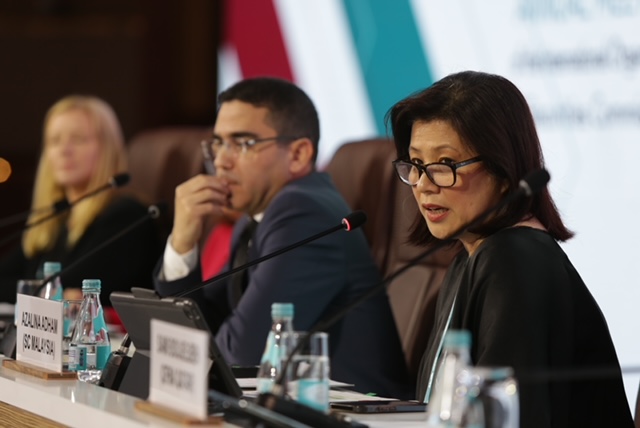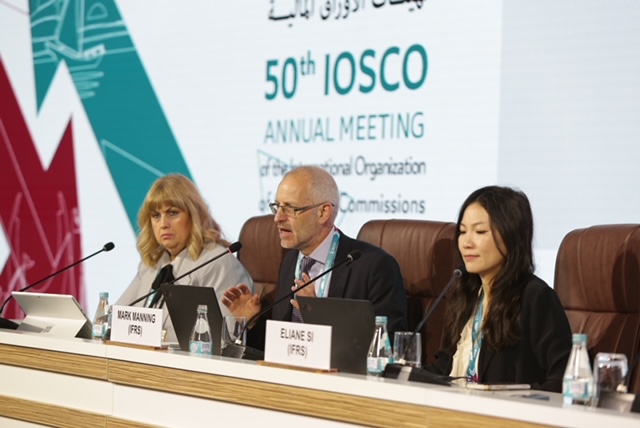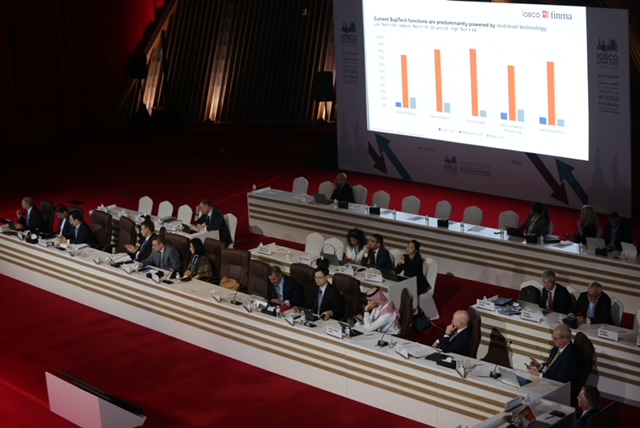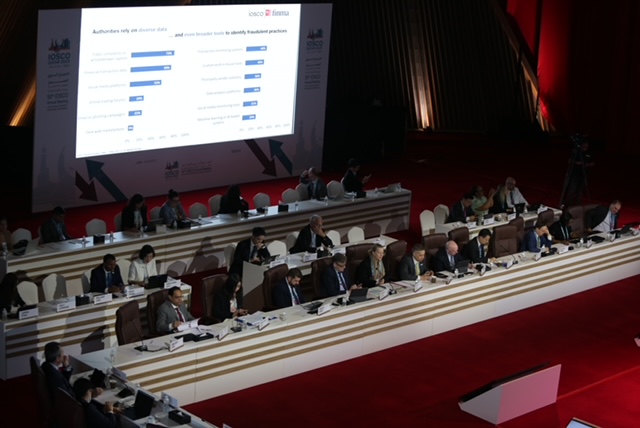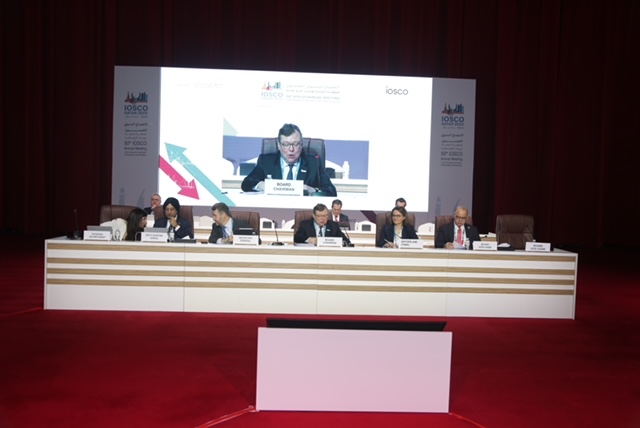The 50th Annual Meeting of the International Organization of Securities Commissions (IOSCO), hosted by Qatar Financial Markets Authority (QFMA), continued in Doha on Tuesday.
Among the key events of the day was the meeting of the IOSCO Board attended and participated by its Board members.
The day's agenda also included 3 regulatory workshops with the participation of IOSCO members.
The 1st workshop, titled "Global Sustainability Disclosure Standards: Developing Roadmaps for Adoption and Other Use of ISSB", aimed to support jurisdictions in their journey for adoption and other use of the ISSB standards.
The discussions cover an overview of the IFRS Foundation's Inaugural Jurisdictional Adoption Guide and the Adoption Toolkit, which includes policy rationale materials, a roadmap development tool, and roadmap templates.
The guide and toolkits were designed to facilitate jurisdictional adoption of the standards, aiming to seek to ensure international consistency and comparability in sustainability-related disclosures.
The session also featured a panel discussion with growth and emerging market members from around the world who have made significant progress in developing and implementing a roadmap in their jurisdictions, sharing their firsthand experiences, including their policy rationale and adoption approaches, and challenges encountered, and solutions implemented.
The 2nd regulatory workshop, titled "Implementing Crypto Assets Frameworks", discussed the IOSCO's policy recommendations for crypto and digital asset markets, which seek to promote market integrity, investor protection, and cross-border regulatory coordination.
The discussions emphasized that as crypto and digital asset markets continue to expand and evolve, regulators face the challenge of mitigating risks such as fraud, market manipulation, and custody vulnerabilities, while ensuring alignment with the way traditional markets are regulated, under the principle of "same activity, same risks, same regulation".
The workshop also focused on how jurisdictions are approaching the adoption and implementation of effective regulatory regimes for crypto-assets that help tackle the cross-border and cross-sectoral challenges involved, in line with the IOSCO policy recommendations.
The 3rd workshop was titled "Navigating Private Finance: Addressing Vulnerabilities in a Changing Financial Environment".
This workshop brought together regulators and industry representatives to explore major trends, risks and data gaps in private finance. As evidenced by IOSCO's Thematic Analysis: Emerging Risks in Private Finance Final Report (September 2023) and the ongoing work of IOSCO's Committee of Emerging Risks and its Private Finance Working Group, this sector has expanded significantly over the past decade, transforming capital markets and creating new opportunities for investment and economic growth.
Discussions also addressed concerns over opacity, valuation practices, leverage, and potential conflicts of interest have raised questions regarding financial stability, investor protection, and market integrity.
She also stressed that the evolving macro-financial environment over the past years, characterized by shifts in interest rates, liquidity conditions and market volatility, creates further complications.
In addition, Panelists discussed how regulators, financial institutions and investors are adapting to developments in private finance and addressing vulnerabilities, as well as the analysis of the role of cross-border cooperation in mitigating systemic risks and discuss the future development of this sector.
